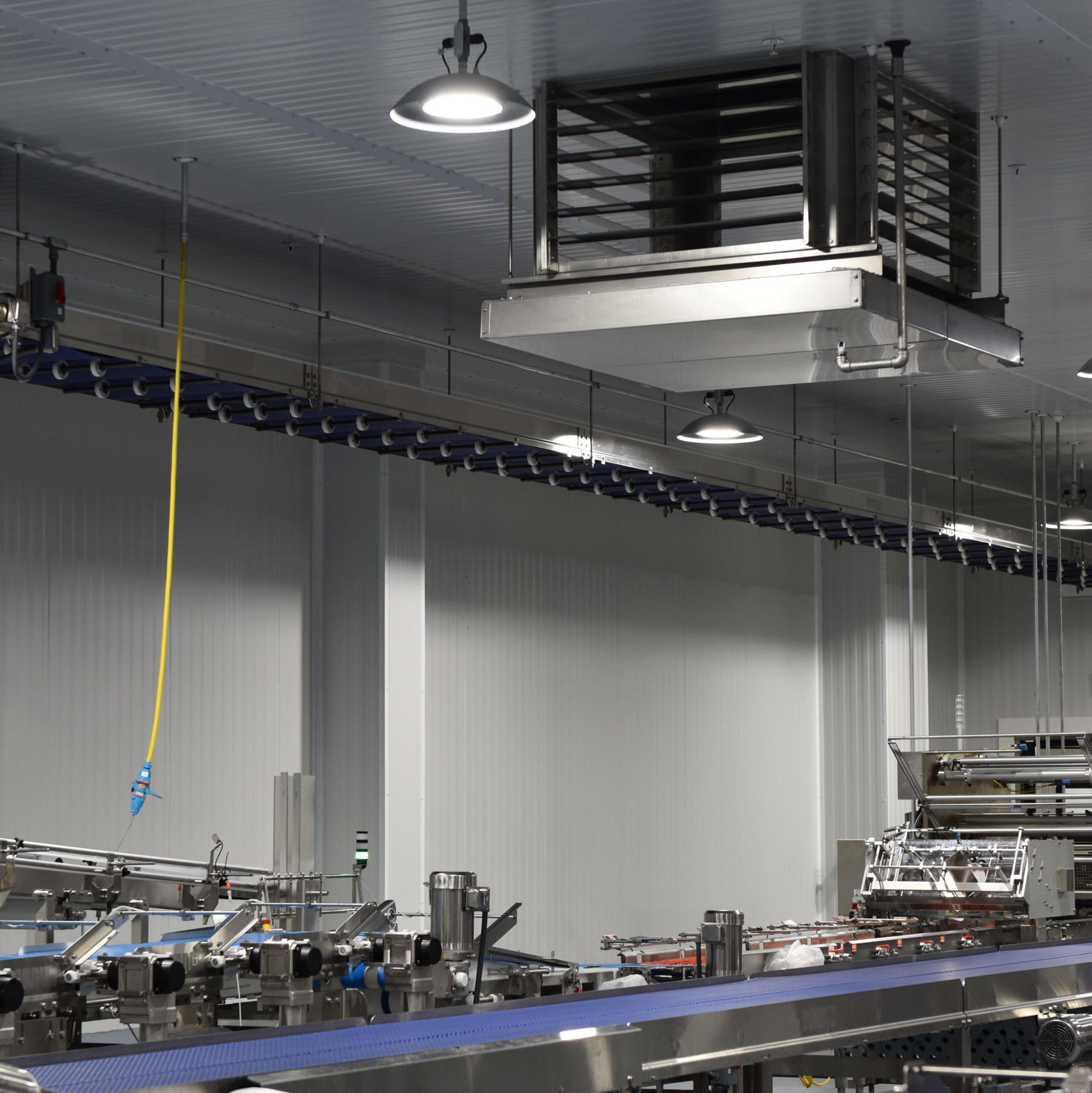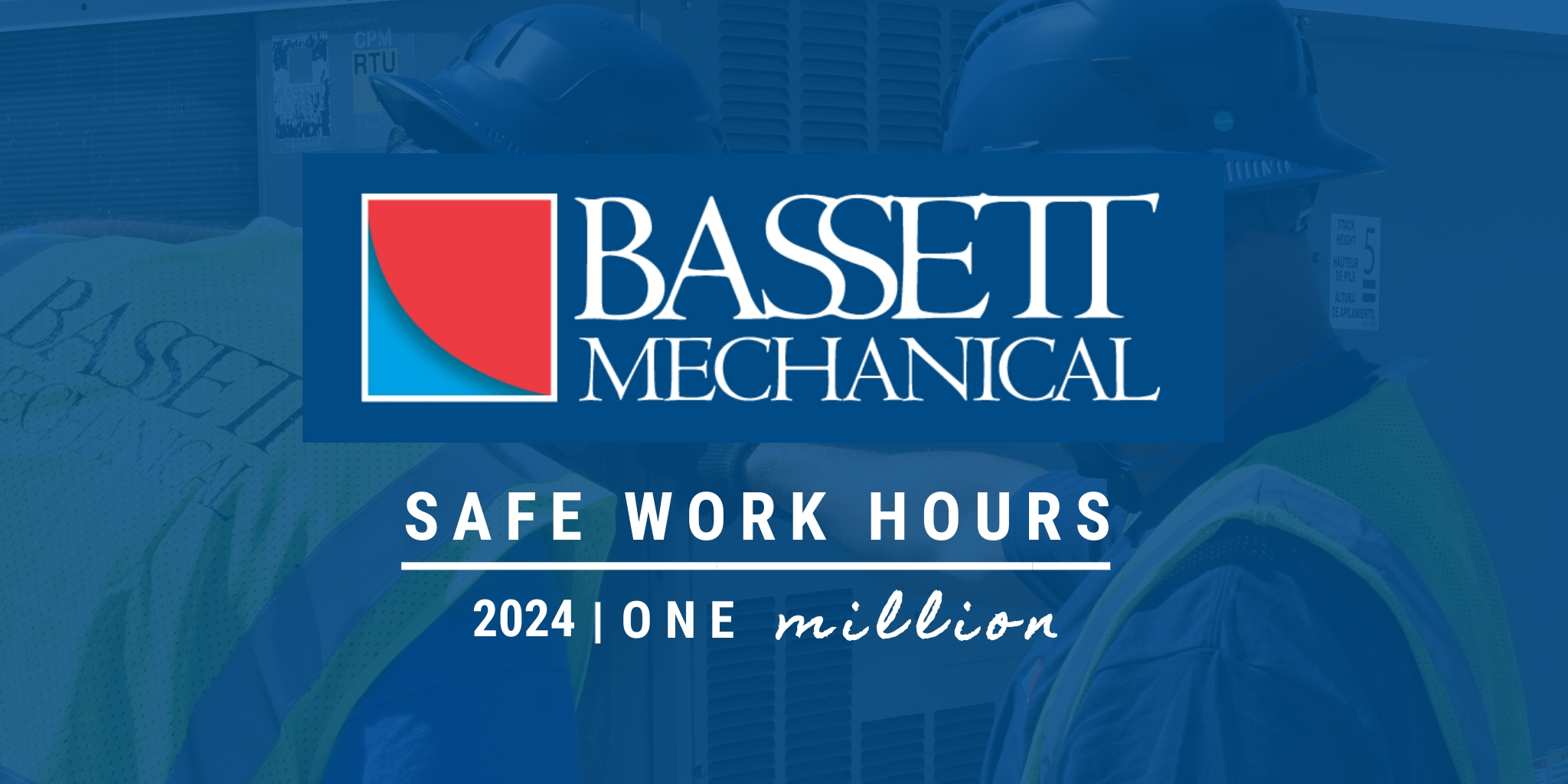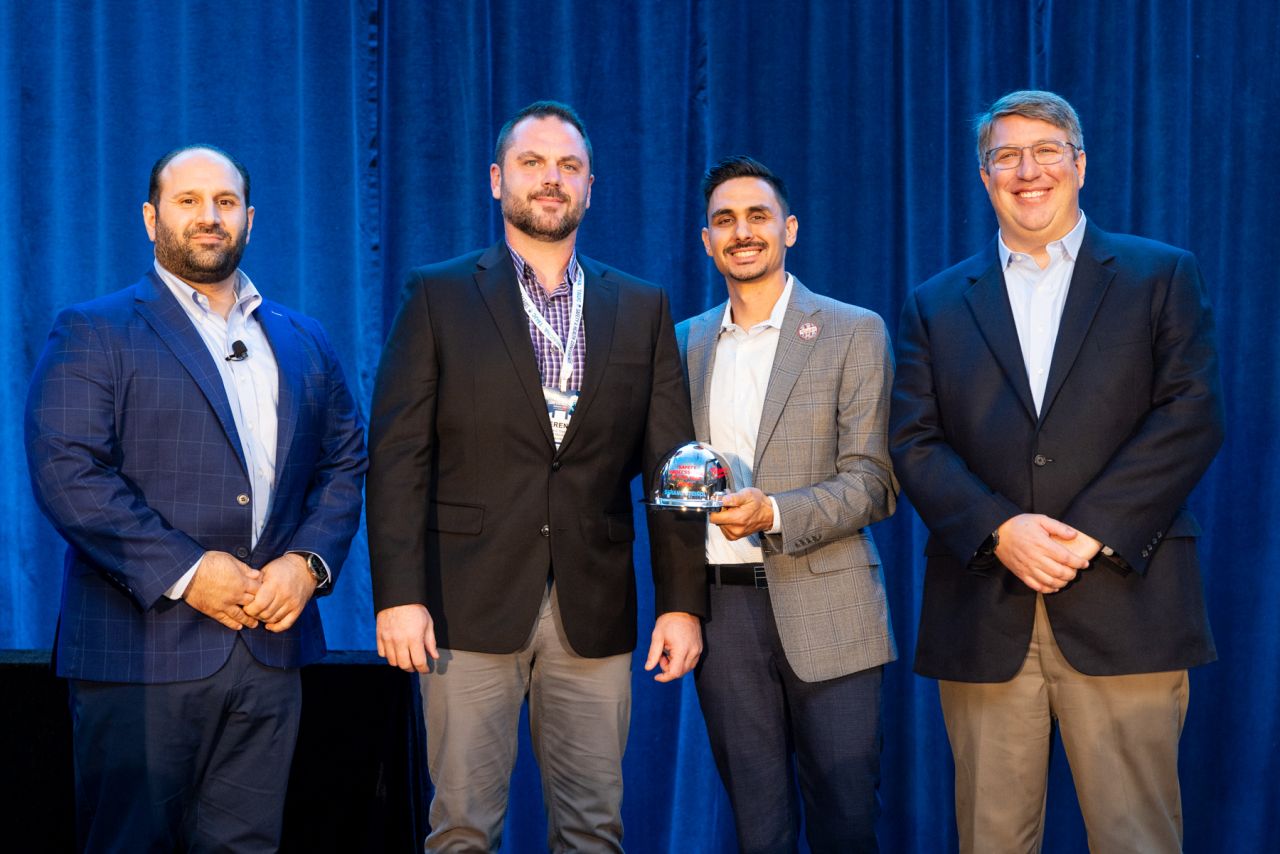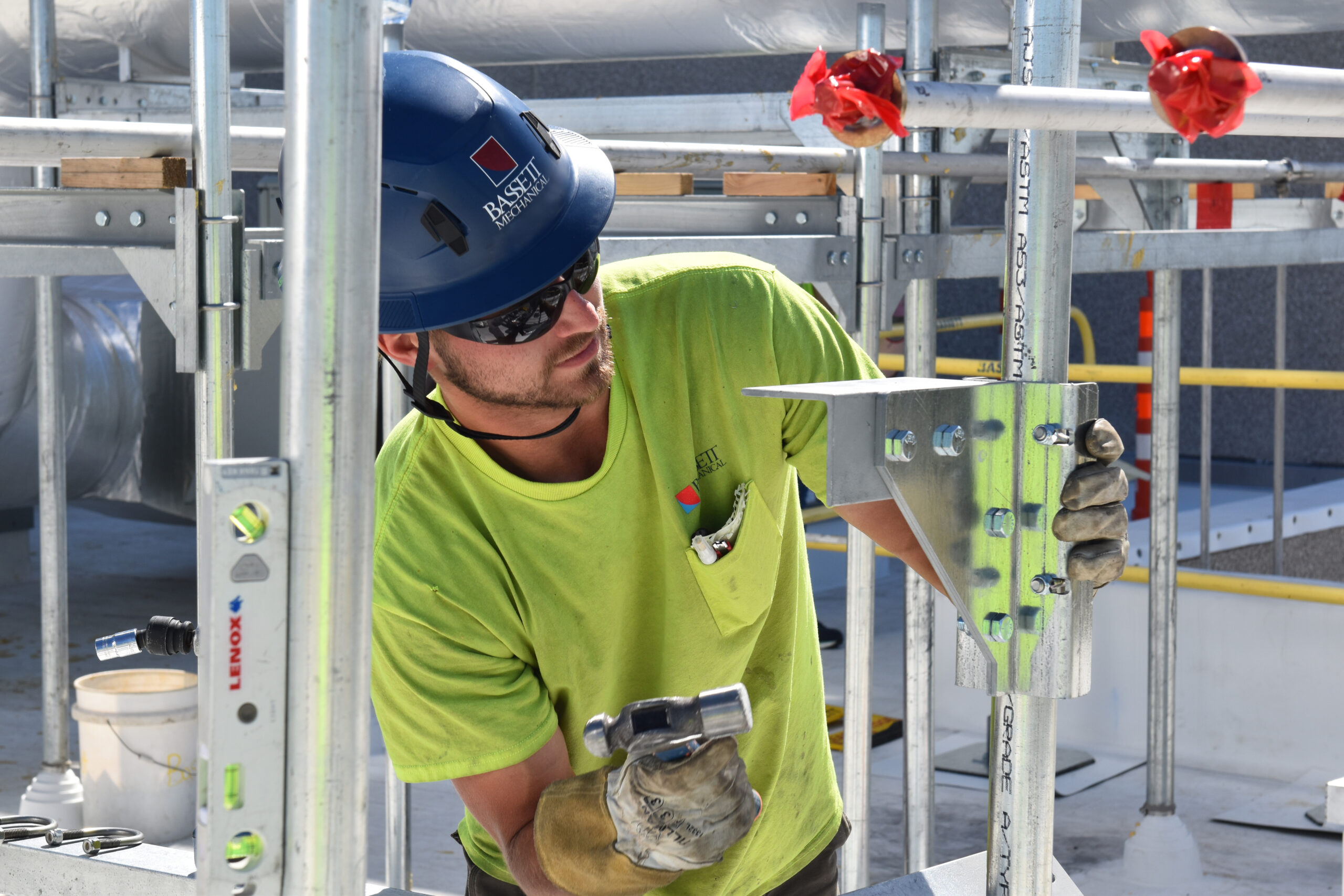On June 7th we celebrated World Food Safety Day; a day marked with awareness of and passion for the integrity of safe food production across the world. At Bassett Mechanical, we celebrate this day alongside those who not only love to consume healthy food, but also our partners in the food production industries who daily are focused on creating high-quality products and who rely on us to provide solutions that directly impact their critical systems.
FOOD SAFETY AND RESPONSIBILITY
“Food safety” can be used broadly but includes many complexities and responsibilities from an engineering, fabrication, installation, controls, and service perspective. Partnering with our food and beverage customers, our priority is to listen and understand the very specific needs and applications of the process and facility. These intricacies involve many aspects of product safety like climate control, filtration, frozen or ready-to-eat temperature and humidity requirements, and site accessibility, along with many other guidelines and standards. Bryan Blom, Director of HVAC Engineering, says our teams play an important role in defining a complete solution based on an accumulation of many various factors and significant requirements. “We might suggest specific seam welds or duct requirements for a specific process, or discharge temperatures to prevent condensation. Every detail matters.” Blom says that a specification failure or a change in process- such as producing a different product on the line- requires a change in process requirements to ensure the highest quality production. Producers rely on us for a safe and responsible solution for each unique process, and we provide these solutions on the foundation that both safety and responsibility are two things that cannot be compromised.
NO SHORTCUTS
Food safety means something to each of us. To the consumer, it means high quality from the foods we purchase, consume, and share with our families and friends. To food producers, it means quality partnerships with industry experts to ensure the highest level of safety and good manufacturing practices. Larry Lonadier, Operations Manager, says, “Our field teams are asked to work in production spaces or near open product. We prioritize training and follow strict customer policies and measures including gowns, hairnets, and good manufacturing practices. Our customers trust us to meet and exceed the highest level of food safety.”
Producers rely on us for a safe and responsible solution for each unique process, and we provide these solutions on the foundation that both safety and responsibility are two things that cannot be compromised.
Food producers know that finely tuned systems are the key to efficient production and quality of the product. A proactive approach to preventative maintenance is a crucial component of the production process. Through customized preventative maintenance programs, experts who are highly trained and certified in the industry can provide routine maintenance such as dirty filter removal in a safe and compliant manner, following all necessary procedures to maintain the integrity of the operations and processes.
Our support of these critical systems is crucial and is part of what deemed us as an “essential business” during the COVID-19 pandemic. There are no shortcuts when it comes to addressing important food safety requirements to help avoid the significant ramifications resulting from non-compliance:
- Production loss. Food contamination means production lines must be shut down for cleaning and sanitization. The process is halted until it can continue safely and contaminated food is discarded.
- Profit loss. Production lines that are shut down are not producing a continuous product and therefore are racking up dollars in downtime costs. The compromised product cannot be sold or distributed and can also result in expensive recalls or even costly fines.
- Risk to safety and wellbeing. Along with health risks related to food contamination and consumption, facilities that incorporate ammonia into their refrigeration systems also need strict compliance programs to ensure the preservation of products and the safety of the people at the facility.
Food manufacturing is a world of trust. The producer must trust the contractor to provide innovative and conceptual coaching and follow the best practices they have provided for their unique process. “That means food safety has to be a priority for each of us,” says Lonadier, “and is a responsibility we take very seriously.”
FOOD SAFETY IMPROVEMENTS AND TRENDS
Over time, through the growth and evolution of both technology and product offerings, trends can begin to be identified throughout the industry. Improvements and changes are happening rapidly and are in favor of even safer and more detailed processes.
- Additional safety requirements. An ever-increasing focus on improved safety requirements, along with the expectation that those are followed diligently, has been a noticeable and positive step toward continuing to provide a strong and confident food chain.
- In-house quality personnel. Facilities and producers continue to see the added benefits of having an on-site trained professional who manages the quality standards and requirements for their facility. This is a tremendous support to both the production staff as well as in partnership with contractors who can tap into this additional in-house expert to communicate any unique facility specifications.
- End-user restrictions and documentation. Today, many more end users are requiring specific documentation or product details be supplied in order to accept product into their facility. These details could include a variety of food safety requirements such as how products are being delivered and at what temperatures they are stored and shipped. These specifications often impact the production and manufacturing process to ensure the details are documented and upheld throughout the food’s journey to our tables.
Food manufacturing is a world of trust. The producer must trust the contractor to provide innovative and conceptual coaching and follow the best practices they have provided for their unique process
With our access to (nearly) unlimited information today, customer requests also begin to trend along with keywords popular throughout the industry. This is an opportunity to discuss the current process in conjunction with the potential value that can be added to the customer’s current needs. Blom indicates a trend in discussion around increasing “air changes”, but warns that the term must be looked at holistically from all aspects of humidity control for processes and sanitation to production and filtration. Another common request is for increased filtration, however most food plants have dual filtration systems, which is beyond standard filtration and above the commonly suggested MERV13 filters. Open communication around these options and how they could impact a food producer’s specific facility is important to ensure any changes made will support all areas of the facility’s unique specifications.
As an essential partner, adaptability and flexibility to these plant-specific requirements is key to the ability to provide complete solutions that support the advancing trends. Our full-service solutions have enhanced our customer’s food processing requirements by offering:
- Building health options including touchless filters and UV lighting
- Uniquely designed and engineered HVAC and industrial refrigeration systems
- Customized preventative maintenance solutions tailored to specific facility and process needs
- Integrated control systems to support energy efficiency, safety, and real-time reporting and documentation
- Hygienic ductwork including customized welds and finishes, cleanroom capabilities, duct supports and access doors, wall cladding, prefabrication, and other best practice solutions
- PSM and documentation process support
- Expert participation in industry affiliations like ASHRAE, RETA, and IIAR to engage at the forefront with the industry’s best professionals
“We are committed to understanding each facility’s requirements and adhering to them as strictly as if they were our own,” says Lonadier. Heightened awareness of safety and enforcement of restrictions continues to impact all facets of the food process from production and storage to shipment and consumption. The ultimate goal is providing the right air quality for customer’s specific food safety needs and to follow the customer’s guidelines as well as good GMP when working in their operating facilities. That includes air changes, filtration, humidity, temperature, and dependability, along with the flexibility to ramp up production and still have the quality environment that they need to keep products and people safe.
Learn more about our focus on safe solutions.




